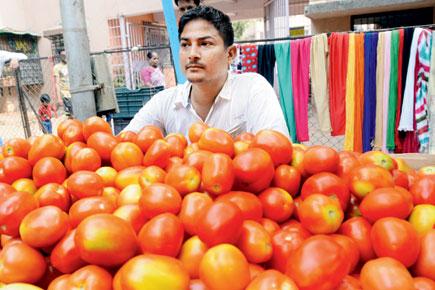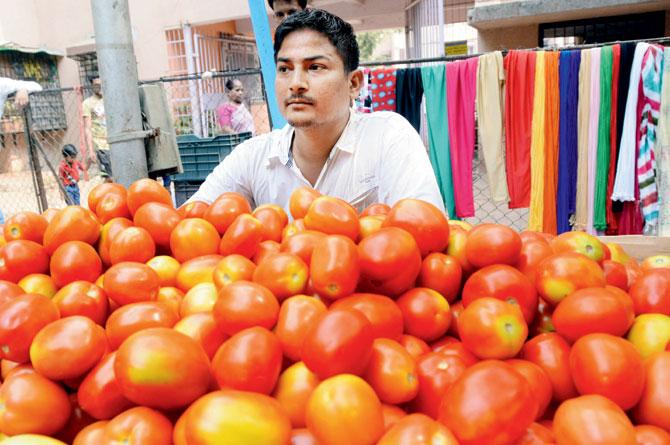A week since withdrawal of Rs 500 and Rs 1,000 notes, the rush at ATMs and banks has begun to peter down, albeit a bit. But grocery store owners and vegetable vendors who are heavily dependent on cash transactions are yet to limp back to normalcy

 Tomato vendor Mohammad Sohail at Kherwadi. Pic/Sayyed Sameer Abedi
Tomato vendor Mohammad Sohail at Kherwadi. Pic/Sayyed Sameer Abedi
ADVERTISEMENT
A week since withdrawal of Rs 500 and Rs 1,000 notes, the rush at ATMs and banks has begun to peter down, albeit a bit. But grocery store owners and vegetable vendors who are heavily dependent on cash transactions are yet to limp back to normalcy.
A large number of them say they have been running losses as customers don’t have smaller change to make payments. Quite a few of them even slashed prices of commodities nearing their shelf life by 10-20% to lure people back. That ruse, however, hasn't worked.
Rajesh Kumar, a Kherwadi-based vegetable vendor, said he has no change left with him. "Buyers come with Rs 500 and Rs 1000 notes. We are small vendors and we deal only with cash. This cash crunch has taken a toll on us. Despite facing a huge loss, I slashed the prices of vegetables so that they could be sold before they rotted. But, few buyers have turned up.:
Mohammad Sohail, who has been selling tomatoes for the last 13 years, said he used to sell over 150 kg of tomatoes every day prior to demonetisation, but is now barely able to meet a daily target of 50 kg. "I have reduced the price from Rs 20/kg to Rs 15, but I still don’t have customers. I’m losing R1,000 everyday. If such a situation continues, how will we survive?"
At the Four Bungalows market in Andheri West, too, vegetable vendors have slashed prices. The owner of a provisions store in Seven Bungalows, Andheri, said his business has seen the worst slump in 10 years since the banning of high value denomination notes. "I barely get customers willing to pay in cash. I have started opening credit lines for people to avoid further loss."
 Subscribe today by clicking the link and stay updated with the latest news!" Click here!
Subscribe today by clicking the link and stay updated with the latest news!" Click here!






